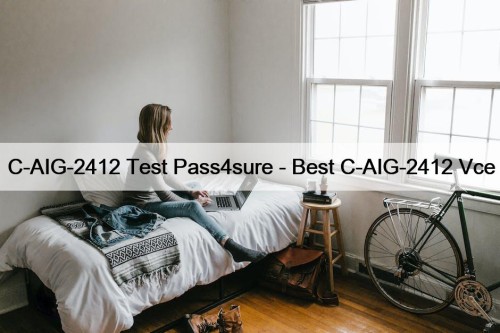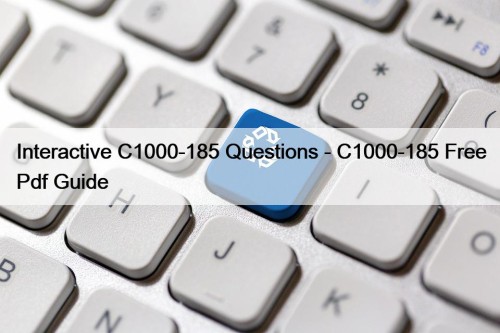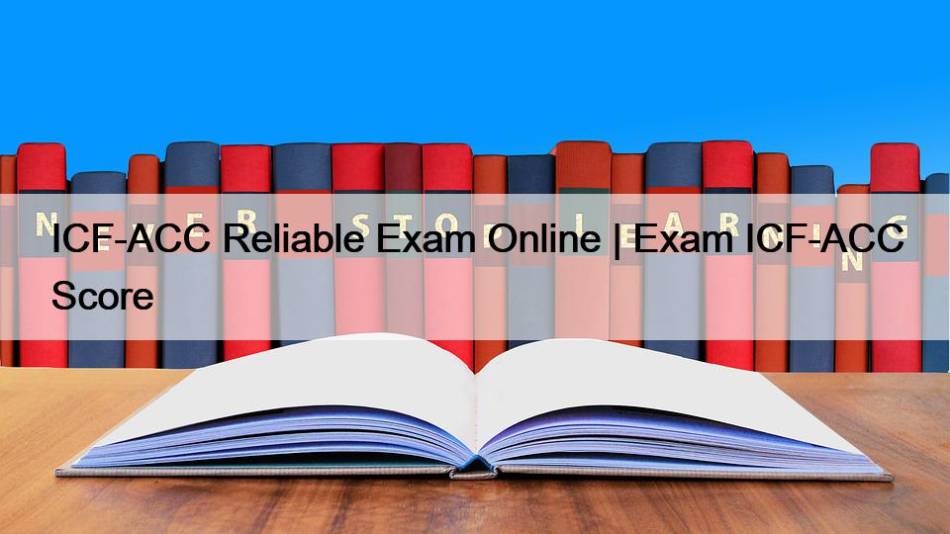Most Popular
 C-AIG-2412 Test Pass4sure - Best C-AIG-2412 Vce
C-AIG-2412 Test Pass4sure - Best C-AIG-2412 Vce
With the popularization of wireless network, those who are about ...
 Interactive C1000-185 Questions - C1000-185 Free Pdf Guide
Interactive C1000-185 Questions - C1000-185 Free Pdf Guide
The Test4Engine offers latest IBM watsonx Generative AI Engineer - ...
 100% Pass IBM - C1000-130 - IBM Cloud Pak for Integration V2021.2 Administration Perfect Valid Test Materials
100% Pass IBM - C1000-130 - IBM Cloud Pak for Integration V2021.2 Administration Perfect Valid Test Materials
2025 Latest PrepAwayExam C1000-130 PDF Dumps and C1000-130 Exam Engine ...



ICF-ACC Reliable Exam Online | Exam ICF-ACC Score

You must believe that you have extraordinary ability to work and have an international certificate to prove your inner strength. You will definitely be the best one among your colleagues. The help you provide with our ICF-ACC Learning Materials is definitely what you really need. And if you study with our ICF-ACC exam braindumps, you will know your dream clearly. Join ICF-ACC study guide and you will be the best person!
ICF ICF-ACC Exam Syllabus Topics:
| Topic | Details |
|---|---|
| Topic 1 |
|
| Topic 2 |
|
| Topic 3 |
|
>> ICF-ACC Reliable Exam Online <<
Hot ICF-ACC Reliable Exam Online 100% Pass | Valid Exam ICF-ACC Score: Associate Certified Coach
We have professional IT workers to design the ICF real dumps and they check the update of dump pdf everyday to ensure the ICF-ACC dumps latest to help people pass the exam with high score. So you can trust us about the valid and accuracy of ICF-ACC Exam Dumps. Our braindumps cover almost questions of the actual test.
ICF Associate Certified Coach Sample Questions (Q62-Q67):
NEW QUESTION # 62
Your client is a very creative person who thinks in pictures and learns visually. You, as a coach, are not naturally visual. In order to encourage and facilitate your client's learning, the best response is:
- A. Ask the client about what they know about their preferred learning style and enquire whether using a whiteboard would be a good idea.
- B. Tell your client that you are not able to work with them, as you are not a visual and creative person, therefore not a good coaching match.
- C. Bring a whiteboard into the coaching session where you and the client can use the space to draw pictures, connections, or add any visual aids that might encourage your client's learning.
- D. Let your client know that to solve problems it is more important to be rational and to approach the problem from a more sensible point of view.
Answer: A
Explanation:
Comprehensive and Detailed Explanation:
The ICF Core Competency 4, "Cultivates Trust and Safety," emphasizes adapting to the client's needs to create a supportive environment (ICF Core Competencies, 4.1). Additionally, Competency 6, "Listens Actively," requires coaches to be attuned to the client's way of processing information (6.2). Option D aligns with these principles by demonstrating curiosity and partnership. Asking the client about their preferred learning style respects their autonomy and ensures the coach does not assume what works best, which is a key aspect of the ICF Code of Ethics, Section 4, "Responsibility to Practice and Performance" (4.1 - Adapting to client needs).
Option A violates the ethical principle of non-discrimination and fails to adapt to the client's needs, potentially undermining trust. Option B assumes the whiteboard is the solution without client input, which does not fully partner with the client (Competency 2.2 - Partnership). Option C dismisses the client's visual learning style, contradicting Competency 7, "Evokes Awareness," which encourages leveraging the client's strengths (7.1). Thus, D is the best response as it fosters collaboration and tailors the approach to the client's preferences.
NEW QUESTION # 63
Which best reflects the meaning of the term "conflict of interest" as it relates to the ICF Code of Ethics?
- A. The coach serves one of their own interests that works against one of the client's interests
- B. The interests expressed by the client have the potential to work against the coach's plan for the session
- C. The client has so many interests that it becomes a challenge to identify dear coaching goals
- D. The coach and the client cannot agree on what will serve as the client's best interest during the coi
Answer: A
Explanation:
The ICF Code of Ethics (Section 3.1) defines a conflict of interest as "a situation in which a coach has a private or personal interest sufficient to appear to influence the objective exercise of their professional duties." It's about the coach's competing interests, not the client's. Let's analyze:
A . The client has so many interests that it becomes a challenge to identify clear coaching goals: This is a coaching challenge, not a conflict of interest per ICF's definition.
B . The coach and the client cannot agree on what will serve as the client's best interest during the coi: (Assuming "coi" is "coaching") This is a disagreement, not a conflict of interest involving the coach's personal gain.
C . The coach serves one of their own interests that works against one of the client's interests: This matches Section 3.1, where a coach's personal agenda (e.g., financial gain) undermines client needs, requiring disclosure (Section 3.2).
D . The interests expressed by the client have the potential to work against the coach's plan for the session: This is a misalignment of goals, not a conflict of interest tied to the coach's personal benefit.
Option C best reflects ICF's definition of a conflict of interest.
NEW QUESTION # 64
Which statement most accurately describes the benefits of coaching supervision?
- A. Supervision helps coaches connect with and provide progress reports to their clients' managers
- B. Supervision provides professional direction and ensures coaches follow applicable laws
- C. Supervision helps coaches actively reflect on and seek guidance about their professional experiences
- D. Supervision provides instruction on the latest developments in the field and what other coaches are doing
Answer: C
Explanation:
Coaching supervision, per ICF, supports professional development by providing a reflective space for coaches to enhance skills and address challenges (ICF Competency 2: "Embodies a Coaching Mindset"). It's about growth, not oversight. Let's assess:
A . Supervision helps coaches actively reflect on and seek guidance about their professional experiences: This aligns with ICF's view of supervision as a reflective practice for improving competence and self-awareness (Competency 2).
B . Supervision provides professional direction and ensures coaches follow applicable laws: This suggests control, not the developmental focus of ICF supervision.
C . Supervision provides instruction on the latest developments in the field and what other coaches are doing: This is training, not supervision's reflective purpose.
D . Supervision helps coaches connect with and provide progress reports to their clients' managers: This misrepresents supervision, which is coach-focused, not client-reporting.
Option A most accurately describes supervision's benefits, per ICF's framework.
NEW QUESTION # 65
Which is a key element of ICPs Evokes Awareness competency?
- A. Support the client by showing empathy
- B. Agree with the client on their overall goals.
- C. Acknowledge what is hard for the client
- D. Share observations to create new learning for the client
Answer: D
Explanation:
ICF Competency 7 ("Evokes Awareness") involves "providing observations, asking questions, and challenging the client to increase awareness and insight." Sharing observations is a key element to spark new learning. Let's evaluate:
A . Support the client by showing empathy: This aligns with Competency 5 ("Cultivates Trust and Safety"), not evoking awareness.
B . Agree with the client on their overall goals: This fits Competency 3 ("Establishes Agreements"), not Competency 7.
C . Share observations to create new learning for the client: This directly reflects Competency 7's focus on offering perspectives to enhance client insight.
D . Acknowledge what is hard for the client: This supports empathy (Competency 5), not the proactive awareness-evoking of Competency 7.
Option C is a key element of "Evokes Awareness," per ICF's competency definition.
NEW QUESTION # 66
In which situation should a coach recommend that a client speak with a therapist?
- A. The client says their frequent and intense mood swings are disrupting their life
- B. The client explains that they have been feeling nervous about an upcoming change at work
- C. The coach feels like their guidance has not been helping the client's professional development
- D. The coach notices the client often seems distracted during sessions
Answer: A
Explanation:
The ICF Code of Ethics (Section 2.5) mandates referral when client needs fall outside coaching's scope, such as mental health conditions (ICF Coaching Boundaries). Mood swings disrupting life suggest a clinical issue. Let's review:
A . The coach feels like their guidance has not been helping the client's professional development: This may require coaching adjustments, not therapy (Competency 8).
B . The coach notices the client often seems distracted during sessions: Distraction alone doesn't indicate therapy unless tied to mental health (Competency 6).
C . The client says their frequent and intense mood swings are disrupting their life: This suggests a potential disorder (e.g., bipolar), requiring therapeutic intervention (Section 2.5).
D . The client explains that they have been feeling nervous about an upcoming change at work: Situational nervousness is coachable (Competency 7), not requiring therapy.
Option C justifies a therapy recommendation, per ICF ethics and boundaries.
NEW QUESTION # 67
......
They can try a free demo for satisfaction before buying our ICF ICF-ACC dumps. And a 24/7 support system assists them whenever they are stuck in any problem or issue. This Associate Certified Coach (ICF-ACC) questions is a complete package and a blessing for candidates who want to prepare quickly for the ICF-ACC exam. Buy It Now!
Exam ICF-ACC Score: https://www.vceengine.com/ICF-ACC-vce-test-engine.html
- ICF-ACC Reliable Test Simulator 🌐 Simulations ICF-ACC Pdf 🍳 ICF-ACC Latest Exam Pdf 🎲 ➥ www.pass4test.com 🡄 is best website to obtain ▷ ICF-ACC ◁ for free download 🦔Simulations ICF-ACC Pdf
- New ICF-ACC Test Format 📌 Simulations ICF-ACC Pdf 🅾 ICF-ACC Accurate Study Material 🅰 Easily obtain free download of [ ICF-ACC ] by searching on ▶ www.pdfvce.com ◀ 😂Real ICF-ACC Exam Answers
- ICF-ACC Reliable Exam Online | ICF Exam ICF-ACC Score: Associate Certified Coach Finally Passed 🕔 The page for free download of ➽ ICF-ACC 🢪 on ➽ www.real4dumps.com 🢪 will open immediately 🚕ICF-ACC Guide Torrent
- 2025 ICF ICF-ACC Reliable Exam Online - Associate Certified Coach Realistic Exam Score 100% Pass 🍐 Enter ➽ www.pdfvce.com 🢪 and search for ⮆ ICF-ACC ⮄ to download for free 🔖ICF-ACC Reliable Exam Preparation
- Quiz ICF-ACC - Efficient Associate Certified Coach Reliable Exam Online 👯 Search for ▷ ICF-ACC ◁ and download it for free on ▶ www.prep4pass.com ◀ website 🧡ICF-ACC Exam Objectives Pdf
- ICF-ACC New Braindumps Free 🕠 ICF-ACC Accurate Study Material 🧺 Simulations ICF-ACC Pdf 😝 The page for free download of ☀ ICF-ACC ️☀️ on ⏩ www.pdfvce.com ⏪ will open immediately 🎰Exam ICF-ACC Introduction
- New ICF-ACC Test Format 🥜 ICF-ACC Reliable Test Simulator 🕗 ICF-ACC Latest Exam Pdf 🤛 Download ➥ ICF-ACC 🡄 for free by simply entering [ www.pdfdumps.com ] website 🩺ICF-ACC Reliable Test Price
- New ICF-ACC Cram Materials 📋 ICF-ACC Accurate Study Material 🌅 Real ICF-ACC Exam Answers 🍔 Immediately open ▛ www.pdfvce.com ▟ and search for ▶ ICF-ACC ◀ to obtain a free download 🥈ICF-ACC Reliable Exam Test
- ICF-ACC Questions and Answers: Associate Certified Coach - ICF-ACC Practice Test 🎶 Search for ▷ ICF-ACC ◁ on ▷ www.torrentvalid.com ◁ immediately to obtain a free download 🐠ICF-ACC Accurate Study Material
- ICF-ACC Latest Exam Pdf 🛐 Simulations ICF-ACC Pdf 🌑 Real ICF-ACC Exam Answers 👇 Open ➡ www.pdfvce.com ️⬅️ and search for ➠ ICF-ACC 🠰 to download exam materials for free ☁ICF-ACC Reliable Exam Test
- Exam ICF-ACC Tutorial 🐶 ICF-ACC Reliable Test Price ⬅️ ICF-ACC Accurate Study Material 👨 Enter ➠ www.pdfdumps.com 🠰 and search for 【 ICF-ACC 】 to download for free ⭕ICF-ACC New Study Notes
- ICF-ACC Exam Questions
- ahmedmamdouh.online learn.belesbubu.com zeekuneeku.net cheesemanuniversity.com wirelesswithvidur.com ucgp.jujuy.edu.ar dynamicbangladesh.com argadschool.com thesocraticmethod.in fixfliphispano.com
Tags: ICF-ACC Reliable Exam Online, Exam ICF-ACC Score, ICF-ACC Test Dumps Demo, ICF-ACC Free Learning Cram, Latest ICF-ACC Test Notes